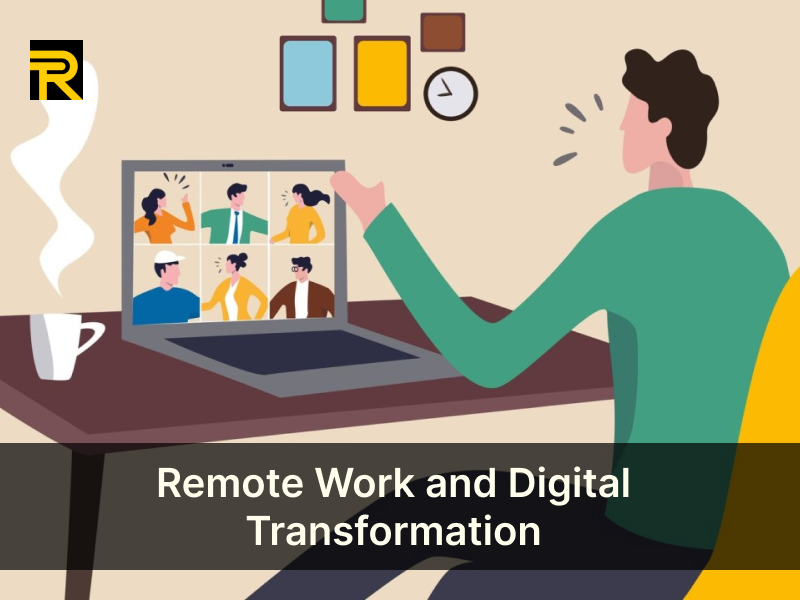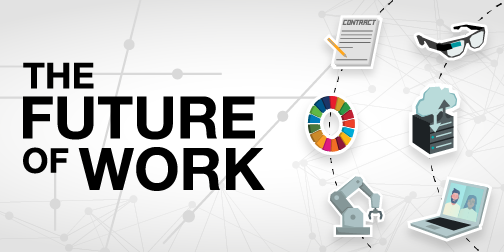
Remote Work and Digital Transformation: Redefining the Modern Workplace
The workplace is undergoing a quaky shift, driven by the twin forces of remote work and digital transformation. The global universal accelerated these changes, prompting businesses to embrace new technologies and workflows that enable teams to stay connected and productive, regardless of location. From the rise of hybrid work models to the adoption of advanced cloud tools, the convergence of remote work and digital transformation is redefining how organizations operate.
The Rise of Remote Work

Remote work, once considered a cheer up for select employees, has become a standard practice for many industries. Companies quickly realized that productivity does not depend on physical office spaces but rather on the tools and strategies that enable effective collaboration. Employees, on the other hand, have embraced the flexibility that remote work provides, enjoying better work-life balance and reduced commuting time.
This shift has given rise to the hybrid work model, which combines remote and in-office work. Employees can choose where they work based on their tasks, allowing for greater autonomy while encourage collaboration during in-person meetings. Hybrid work ensures that businesses can maintain a sense of community and teamwork while catering to individual preferences.
Digital Transformation: The Backbone of Remote Work

At the heart of remote work lies digital transformation, a process that involves leveraging technology to enhance business processes, improve customer experiences, and drive innovation. Digital transformation has been vitall in enabling remote work, providing the infrastructure and tools needed for seamless virtual collaboration.
Cloud tools, for example, have become indispensable for remote teams. Platforms like Google Workspace, Microsoft 365, and Slack enable employees to collaborate on projects in real-time, share documents, and communicate effectively. These tools ensure that work continues uninterrupted, no matter where team members are located. Moreover, cloud-based solutions offer scalability, allowing businesses to adapt to changing needs without significant infrastructure investments.
Virtual Collaboration: Breaking Down Barriers

One of the challenges of remote work is maintaining effective communication and collaboration. Virtual collaboration tools have stepped in to bridge this gap, enabling teams to connect and work together across time zones. Video conferencing platforms like Zoom and Microsoft Teams have become the go-to solutions for meetings, while project management tools like Asana and Trello keep teams aligned on tasks and deadlines.
These tools have not only enhanced productivity but also encourage inclusivity. Remote work allows organizations to tap into a global talent pool, bringing diverse perspectives and skills to the table. By leveraging virtual collaboration tools, businesses can create an environment where everyone feels connected and valued, regardless of geographical boundaries.
Remote Productivity: Strategies for Success

While remote work offers many benefits, it also requires a thoughtful approach to maintain productivity. Clear communication, goal setting, and regular check-ins are essential to ensure that teams stay on track. Organizations can support their employees by providing the right tools and resources, such as easy to use home office setups and access to digital training programs.
Another critical aspect is promote a strong company culture. Virtual team-building activities, regular feedback, and recognition programs can help maintain morale and engagement among remote employees. By prioritizing these elements, businesses can create an environment where employees succeed, whether they’re working remotely or in the office.
The Future of Work

The intersection of remote work and digital transformation is reshaping the future of work. As businesses continue to adopt and refine hybrid work models, they will need to invest in technology and strategies that support flexibility, collaboration, and innovation. Digital transformation will remain a driving force, enabling organizations to stay competitive in an increasingly digital world.
In conclusion
remote work and digital transformation are not just trends but fundamental shifts in how work is conducted. By embracing these changes, businesses can unlock new opportunities for growth, improve employee satisfaction, and create a more inclusive and resilient workplace. The future of work is here, and it’s digital.
Follow Us
Trending News
Newsletter
Aliqu justo et labore at eirmod justo sea erat diam dolor diam vero kasd



